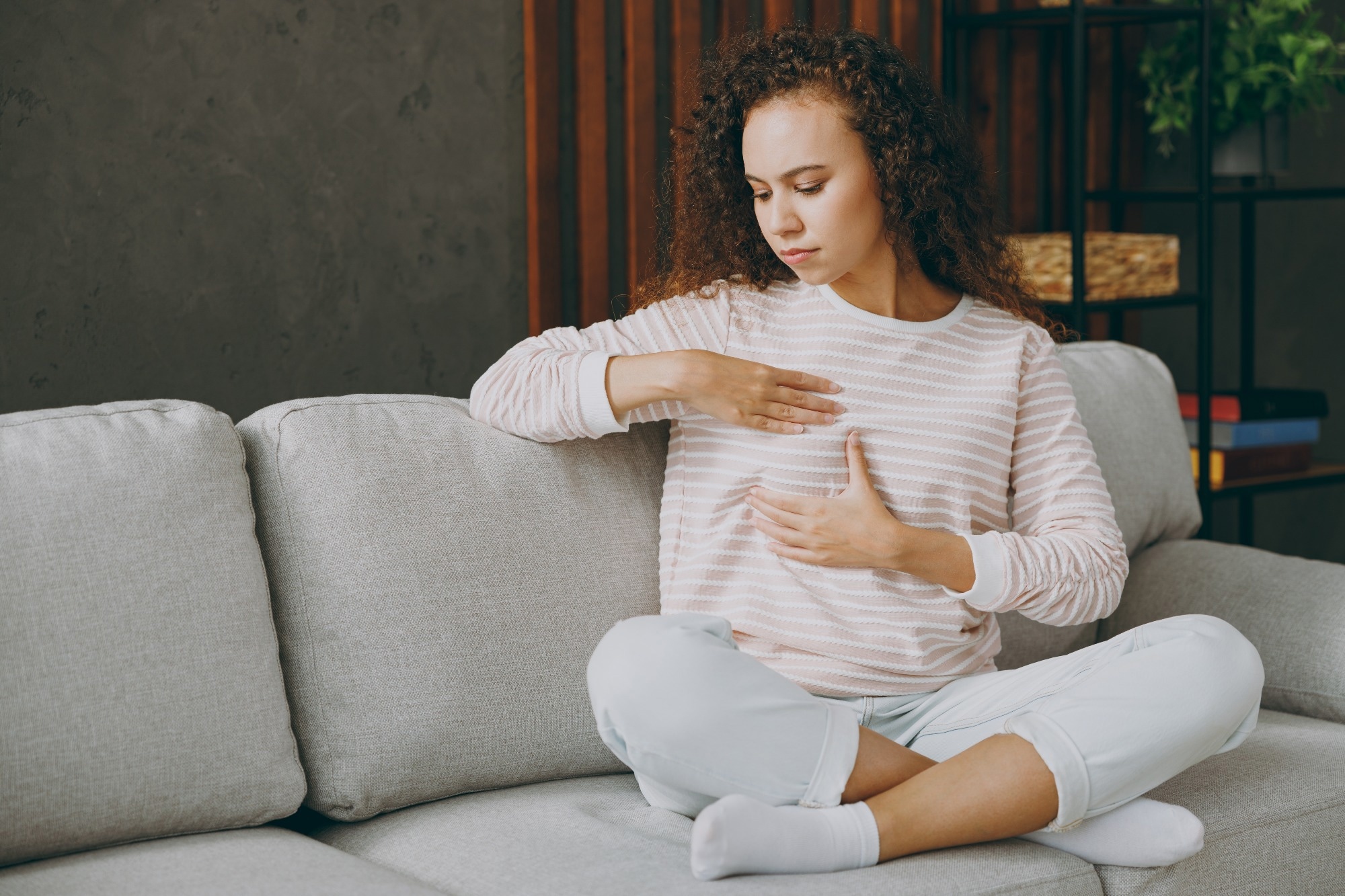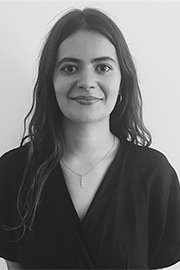On World Cancer Day 2025, we spoke with Phoebe Lazell from CoppaFeel! about the ‘Check In’ campaign, which is not only encouraging young people to check their chests but also tackling the health inequities that contribute to later diagnoses in underrepresented communities.
Can you start by giving us an overview of the CoppaFeel! x NHS NELCA campaign: What makes it unique in tackling breast cancer awareness among young people?
The CoppaFeel! x NHS NELCA ‘Check In’ campaign is all about shaking up the conversation around breast cancer for young people. We know that many young people don’t think breast cancer is relevant to them, and even fewer regularly check their chests.
This campaign is about changing that – starting real conversations, challenging myths and stigma, and making self-checking feel like second nature. It’s been designed by and for young people from North East London, ensuring it’s relatable, engaging, and speaks their language. We’ve teamed up with Gen Z creators and are bringing these conversations straight to their social feeds, making checking in on your mates (and yourself) as normal as sending a voicenote.
 Image Credit: ViDI Studio/Shutterstock.com
Image Credit: ViDI Studio/Shutterstock.com
The campaign is described as “disruptive.” Can you share how it challenges misconceptions or changes the way we talk about breast cancer in younger and underrepresented communities?
When people think of breast cancer, they often picture an older, white woman. Breast cancer can affect anyone at any age, and this campaign directly tackles that misconception head-on. We’re also cutting through the usual clinical messaging with something that actually feels relevant to young people.
Instead of generic advice, ‘Check In’ dives into real experiences about why people don’t check, the cultural stigmas that stop conversations, and how to start those chats in a way that feels natural.
Breast cancer is often perceived as something that primarily affects older women. What are some of the biggest myths about breast cancer in younger people that this campaign aims to dispel?
Truthfully, the biggest myth is that breast cancer isn’t a young person’s issue. Breast cancer is the most common cancer in females aged 15+ and is one of the leading causes of death in women under the age of 50. For young people under the national screening age of 50, knowing the signs of breast cancer is key.
Nationally, only 25% of 18-24-year-olds check their chests monthly. We want people to see this campaign and know that breast cancer can affect people of all ages, genders, and ethnicities. This isn’t about scaremongering; it’s about making self-checking feel as normal as any other part of looking after yourself. Early diagnosis saves lives, and when breast cancer is caught at stage 1, almost 100% of people survive the disease for five years or more.
The statistics are striking—almost half of young people in North East London have never checked their chests. Why do you think that is, and how does this campaign encourage young people to take action?
A lot of young people don’t check simply because they don’t realize they should. For others, talking about their bodies might feel uncomfortable, and in some communities, cultural taboos make conversations about cancer feel off-limits. We often think about health in terms of eating well or staying active, but it’s just as much about getting to know your body.
Checking in with yourself should be as normal as self-care – something you can start to do now, not just something to worry about later in life. That’s why this campaign isn’t just about awareness – it’s about relevancy. Instead of talking to young people, it puts them at the center of the conversation, using real voices and experiences to make the message feel personal.
By starting these conversations earlier, driving up relevancy, and educating young people on the importance of checking, we can instill a healthy habit that could one day save their life.
CoppaFeel! brand refresh 2024
One of the key focus areas is cultural taboos and stigmas. Can you elaborate on some of the unique challenges faced by Black African, Black Caribbean, and South Asian communities when it comes to breast cancer awareness?
In many cultures, talking about health, especially anything to do with chests or cancer, can be uncomfortable. There’s also a long-standing issue of underrepresentation in breast cancer awareness campaigns, which, combined with less spoken about due to stigma and or taboo, can make it feel like something that happens to other people, not your community.
In addition, healthcare inequities mean that some people don’t always feel heard or taken seriously when they seek help. ‘Check In’ is designed to acknowledge some of these issues. By featuring real voices, exploring themes like representation, stigma, and taboo from these communities, and making the campaign feel relevant to everyone, it encourages people to feel more confident having these conversations and taking action.
How can healthcare professionals and public health campaigns work more effectively to engage minoritized communities and encourage regular chest checking?
The goal should always be to meet people where they’re at. Awareness campaigns only work if people see themselves in them—not just in who’s on screen but also in the language, settings, and tones that feel familiar. ‘Check In’ is a regionally targeted campaign co-created with local young people from different backgrounds, ensuring it resonates with the communities it seeks to engage.
Public health campaigns need to feel like a natural part of someone’s world. They should use everyday language instead of medical jargon, show up in places that actually matter to the communities we’re speaking to, and ensure that the people shaping these campaigns reflect the audiences they’re aiming to reach.
But awareness is only the first step. If we’re encouraging young people, especially those from minoritized communities, to take charge of their health, we also need to make sure the system is ready to support them. It’s not just about giving people the confidence to speak up; it’s about ensuring they’re listened to when they do, and this is why we also work with healthcare professionals.
The campaign highlights inequities in healthcare access. What are some of the structural barriers that contribute to later-stage diagnoses in certain communities, and how can we start addressing them?
There’s no single reason why Black African, Black Caribbean, and South Asian women are more likely to be diagnosed at a later stage, but a mix of factors play a role. Some people don’t get the information they need early enough, while others struggle with healthcare access or don’t feel confident advocating for themselves. Medical bias and disparities in how symptoms are investigated are also a contributing factor.
Addressing these issues requires a combination of awareness, education, and systemic change. Representation in medical research, better access to GP services, and community-driven campaigns like this one all help ensure that more people get diagnosed earlier, when treatment is most effective.
The NHS and charities like CoppaFeel! are working together on this initiative—what role do partnerships like this play in tackling health disparities and making sure breast cancer awareness is inclusive?
Campaigns like this work best when organisations play to their strengths. The NHS brings credibility, reach, and expertise, while at CoppaFeel! we know how to speak to young people in a way that actually lands.
Together, we’re combining the NHS’s authority with CoppaFeel!’s youth-focused approach to make sure the message not only gets out there but feels relevant and actionable. And more than that, it’s about setting a new standard for how we talk about health, especially for marginalized communities, so no one feels left out of the conversation.
The campaign features Gen Z creators and a social-first content series. How important is representation in media and social platforms when it comes to changing attitudes towards health and self-checking?
People need to see themselves in the stories being told. If awareness campaigns only ever feature one type of person, it’s easy to feel like the message isn’t for you. That’s why ‘Check In’ is designed to be as diverse and inclusive as possible, ensuring that young people from all backgrounds feel seen.
Social media is also a huge part of how young people engage with the world, so meeting them where they are is key. By working with Gen Z creators who genuinely connect with their audiences, we’re making sure this message lands in a way that feels real and authentic.
Finally, this year’s World Cancer Day theme, “United by Unique”, is all about putting people at the centre of cancer care. How does this campaign align with that message, and what can individuals do to help spread awareness and take action?
This year’s theme is about putting people at the center of cancer care, and that’s exactly what ‘Check In’ is doing. Instead of delivering a generic message, it’s shaped by the people it’s trying to reach, making it more personal, relatable, and impactful.
The best way to support the campaign is to start talking. Share the message, check in on your mates, and make chest checking a normal part of everyday conversations. The more we talk about it, the more lives we can save.
Where can readers find more information?
About Phoebe Lazell
 Phoebe Lazell is the Senior Engagement & Inclusion Manager at CoppaFeel!, a pioneering breast cancer awareness charity committed to educating and empowering people to know their bodies. With a strong focus on engagement and inclusion, Phoebe ensures that CoppaFeel!’s initiatives reach diverse communities, creating accessible and impactful programs that resonate with everyone.
Phoebe Lazell is the Senior Engagement & Inclusion Manager at CoppaFeel!, a pioneering breast cancer awareness charity committed to educating and empowering people to know their bodies. With a strong focus on engagement and inclusion, Phoebe ensures that CoppaFeel!’s initiatives reach diverse communities, creating accessible and impactful programs that resonate with everyone.
Passionate about equity and representation, she leads strategies that foster meaningful connections, break down barriers, and promote a culture of belonging. Through her work, Phoebe is dedicated to driving positive change and ensuring that CoppaFeel!’s message is inclusive, accessible, and representative of all.









